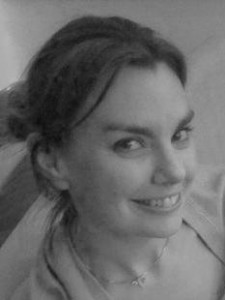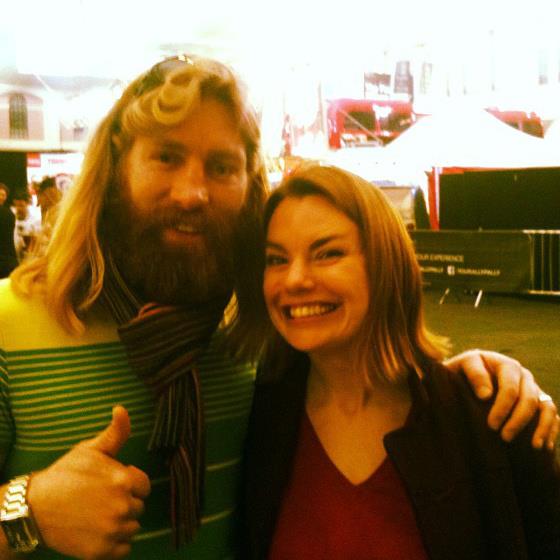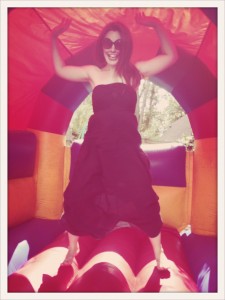 Dr Susan Oman was a PhD researcher, based at the University of Manchester, supervised by Prof. Andy Miles and Prof. Jackie Stacey. She completed her PhD in 2017 which contributed to UEP’s histories and data themes and focussed on the politics of well-being and cultural participation. She is currently an AHRC Creative Economy Engagement Fellow looking at Data, Diversity and Inequality in the Creative Industries. Based at the University of Leeds, Susan is working with Arts Council England (ACE) and fifteen of its funded organisations to understand issues related to data and inequality in the sector and to realise a collaborative measure of social mobility most suitable for the creative professions.
Dr Susan Oman was a PhD researcher, based at the University of Manchester, supervised by Prof. Andy Miles and Prof. Jackie Stacey. She completed her PhD in 2017 which contributed to UEP’s histories and data themes and focussed on the politics of well-being and cultural participation. She is currently an AHRC Creative Economy Engagement Fellow looking at Data, Diversity and Inequality in the Creative Industries. Based at the University of Leeds, Susan is working with Arts Council England (ACE) and fifteen of its funded organisations to understand issues related to data and inequality in the sector and to realise a collaborative measure of social mobility most suitable for the creative professions.
My thesis, All being well: cultures of participation and the cult of measurement considers everyday and elite narratives of well-being and the role of politics and participation in these.
I took the Office for National Statistics’ (ONS) Measuring National Well-being: What Matters to You national debate as the primary focus of my PhD, publishing a chapter on the debate, and my reanalysis of ONS data with Palgrave Macmillan in 2015. My first monograph is expected to be published in 2018 with Palgrave MacMillan, Cultural Value and Well-being: Policy, practice and research contexts of well-being measurement. My new article with fellow UEP researcher Mark Taylor was published open access* in Journal of Cultural Economy in March 2018 and is called Subjective well-being in cultural advocacy: a politics of research between the market and the academy.
After some time trying to access data from different aspects of the MNW debate, I attempted to re-create (or ‘re-perform’) it. In Spring 2014, I held a series of discussions, a little like focus groups across the UK. In settings as varied as prisons and public houses, from Brighton to Powys, and Aberdeen to Derry, I listened to people describe what matters, and what well-being means to them. This enabled a reconsideration of what constitutes well-being in a way which is more inclusive and representative of everyday perspectives, practices and experiences. I concluded that there are key differences between these stories and ideas of what well-being means, and the narratives which drive the agenda to measure well-being in national and international political fora. I also argued that these politics of knowledge production have various implications for policy-making.
These narratives of what people value for their well-being are particularly relevant for the Understanding Everyday Participation – Articulating Cultural Values (UEP) project. Many responses to the question ‘what matters to you?’ in the ONS debate and my fieldwork described the importance of spare time, both how and where it is spent, as fundamental to what people understand as their own well-being, or important to the happiness of others.
Through secondary analysis of free text fields from the ONS, I demonstrated how survey data is an appropriate approach to understanding well-being in ways beyond those that become social indicators. Furthermore, through this reanalysis of survey data, and through my own fieldwork, I highlighted new directions for policy interventions, or how current policies might be ineffective or misdirected. Following the premise of the UEP project, I suggested that cultural policy in particular is too concerned with participation in formal (as funded) activities, such as museum or theatre attendance. Responses to the ‘What Matters to You?’ debate indicated that any all cultural activity contributes to well-being, and that most of it sits outside current cultural policy frames.
Also imperative to my PhD research was a greater understanding of the extent to which what is thought to be ‘the good life’, as explicit (or implicit) in the development of well-being indicators, is an ideological expression of ‘a norm’. Or a way that people are expected to live a good life or relate to such an idea. I looked at the institutional histories of expertise which direct what is measured and how the performativity of research for policy – and the politics of expertise – direct the way that the social world – and participation – is governed.
*the article Subjective well-being in cultural advocacy: a politics of research between the market and the academy was published open access, thanks to the AHRC and UEP project.
Following an Art History BA at the Courtauld, Susan initially worked as a curator before moving into research collaboration and partnerships management at Royal Central School of Speech & Drama. Prior to her PhD, she completed an MA in Cultural Policy at City University and held a fellowship at the Centre of Excellence in Training for Theatre.
Susan has taught on various aspects of cultural policy, as well as politics and research approaches across postgraduate and undergraduate courses in Sociology, Applied Theatre, Arts Management and Cultural Policy courses.
For Susan’s University of Manchester institutional profile, publications and conference papers, please click here
 Susan’s blog UEP contributions include:
Susan’s blog UEP contributions include:
UEP research tackles the social life of well-being indicators
Conversation as an everyday method of participation at the UEP methods conference (right)
The Politics of Cultural Measurement – a review
Breaking the Temple of the Culture – Well-being Relationship – keynote at Tate Liverpool
‘The Well-being – Culture relationship: a long and happy marriage of convenience?’ from UEP’s Histories Symposium
 Experiences of an Early Career Researcher
Experiences of an Early Career Researcher
Oman on Tour: everyday participation in the Welsh mountains
It isn’t every day you get to meet Jesus – a trip to the arrers (left)

